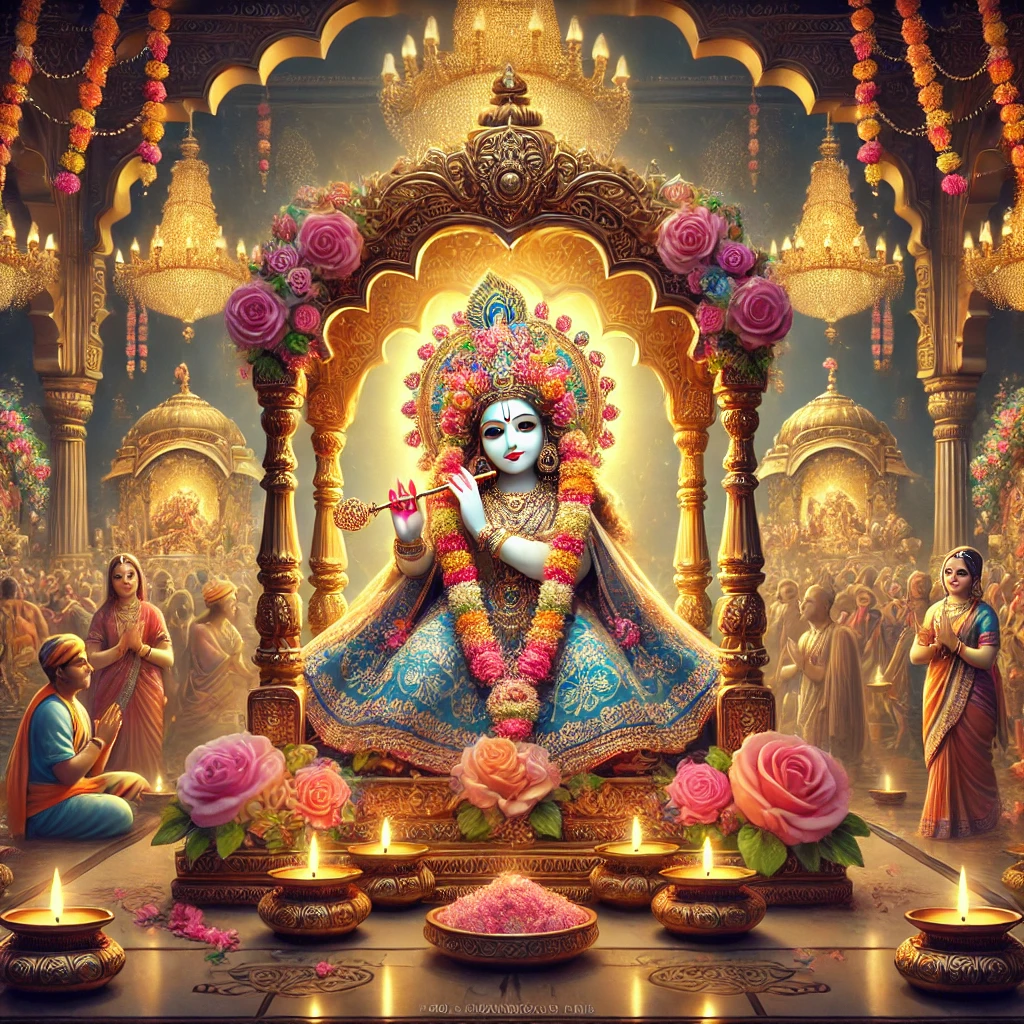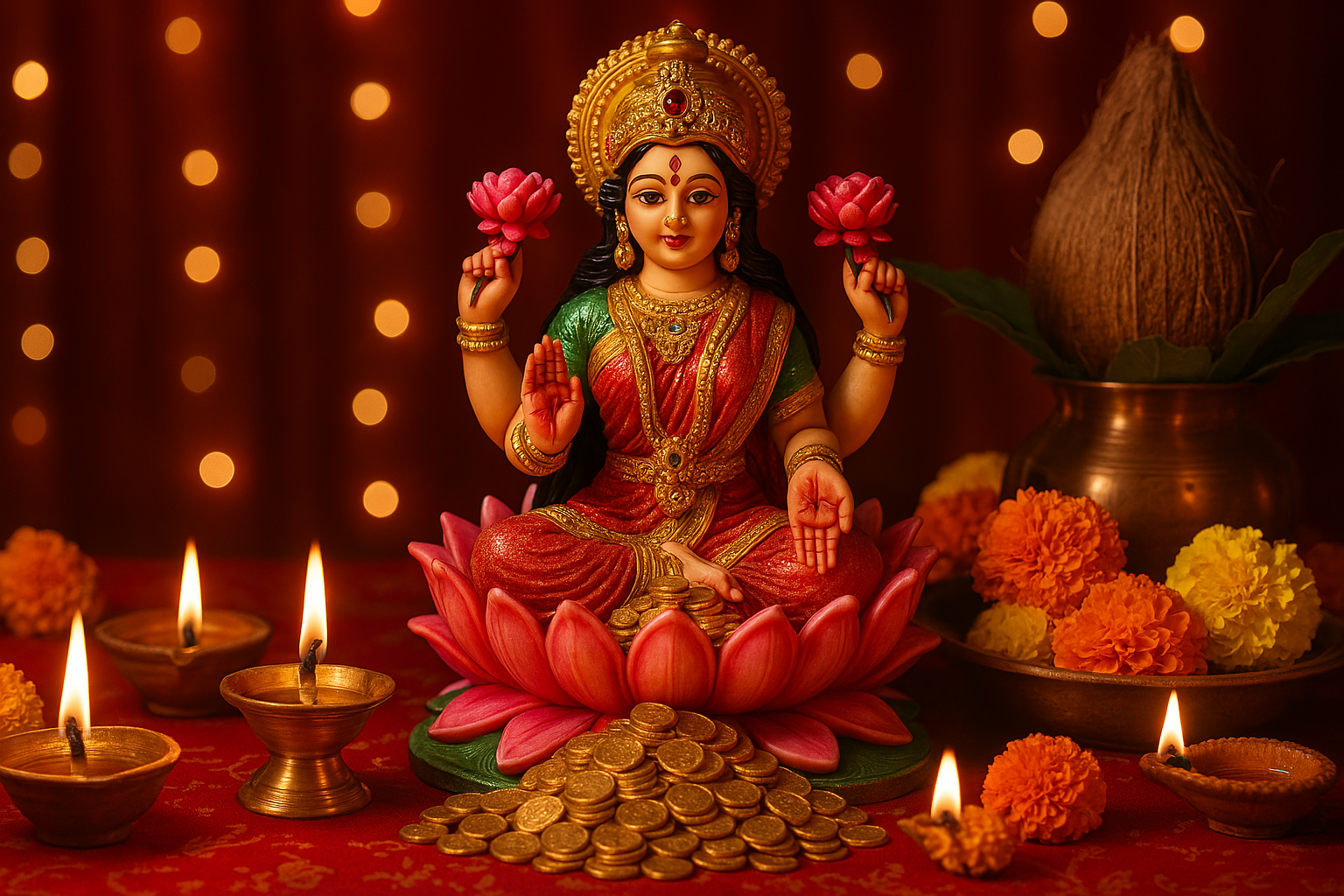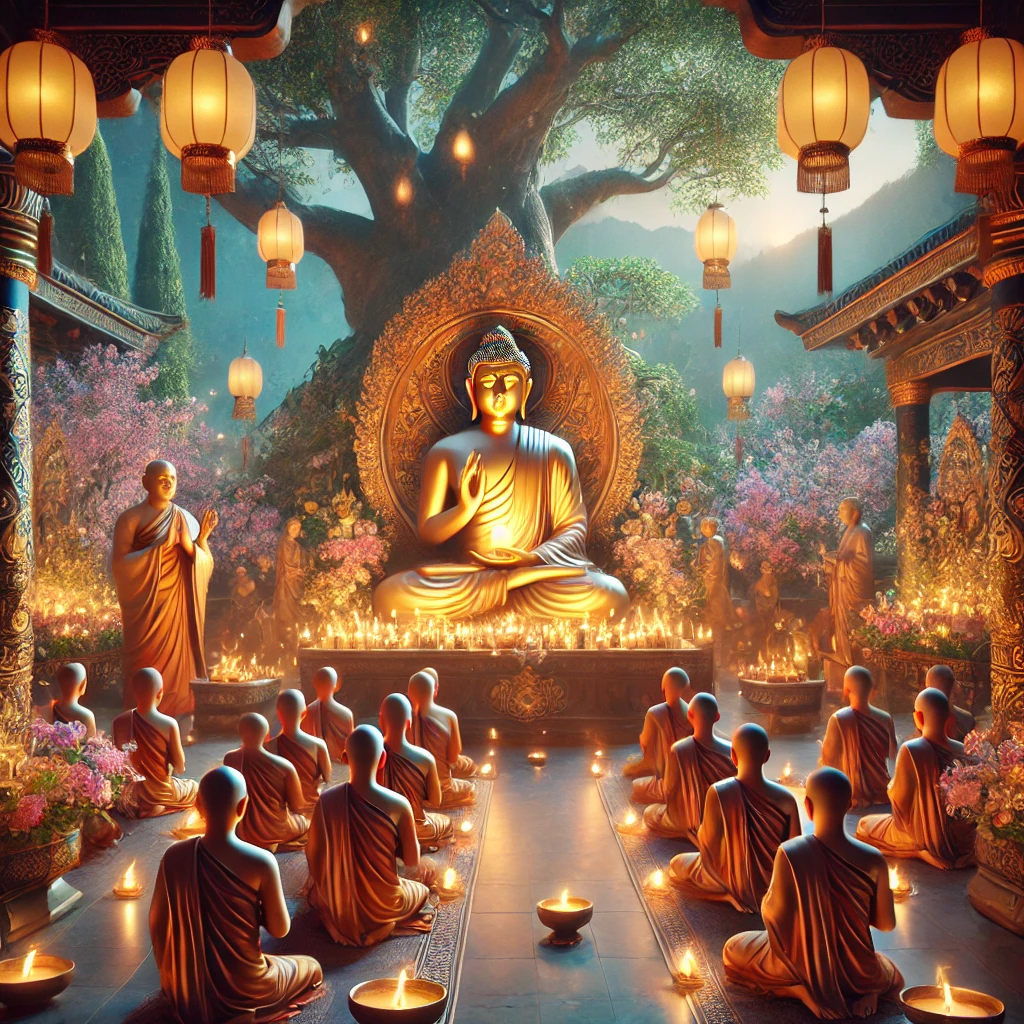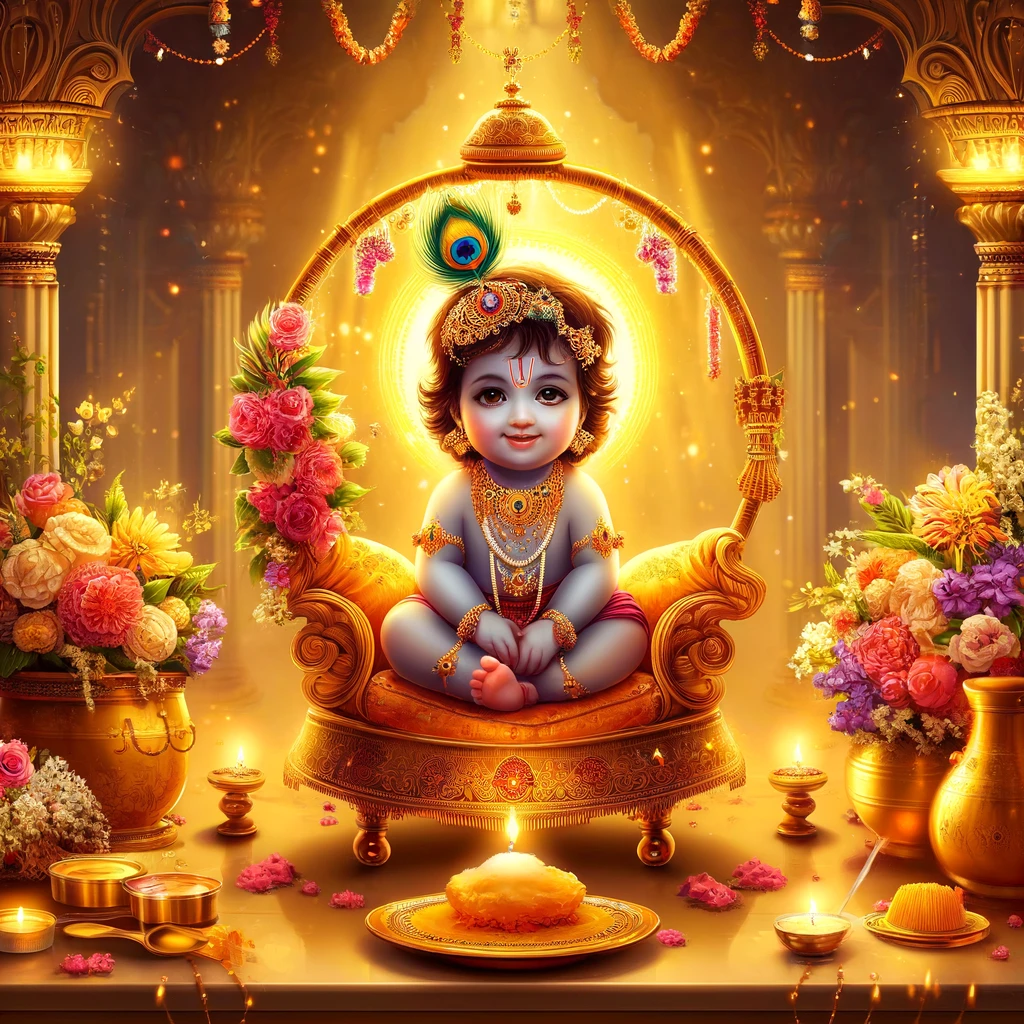Article Contents
When is Radha Ashtami in 2025?
Radha Ashtami is one of the most significant festivals in the Vaishnavism tradition, celebrating the birth anniversary of Srimati Radharani, the eternal consort of Lord Krishna. This festival is observed on the eighth day (Ashtami) of the Shukla Paksha (waxing moon) in the month of Bhadrapada, which typically falls in August or September. For devotees, especially in Bangladesh and other parts of the Indian subcontinent, Radha Ashtami is a day of immense spiritual significance, marked by fasting, prayer, and devotion to Radha-Krishna.
Srimati Radharani is considered the supreme devotee of Lord Krishna and the embodiment of divine love and devotion (bhakti). She is often depicted as the queen of Vrindavan and the personification of Shakti (divine energy). In Gaudiya Vaishnavism, followers believe that without Radharani’s grace, one cannot truly understand or attain Krishna.
In the Bhagavata Purana and other scriptures, Radha’s love for Krishna is portrayed as the highest form of devotion (prema-bhakti). She represents the soul’s longing for union with the divine, making Radha Ashtami a deeply personal and spiritual occasion for devotees.
The Celebration of Radha Ashtami in Bangladesh
In Bangladesh, Radha Ashtami is celebrated with great reverence, particularly in regions where Vaishnavism has a strong influence, such as Dhaka, Sylhet, and the districts of Jessore and Khulna. The festival is particularly prominent in temples dedicated to Krishna and Radha, such as the Dhakeshwari Temple in Dhaka and the ISKCON temples scattered across the country.
- Temple Celebrations and Rituals
- Abhishek (Holy Bathing): The deity of Srimati Radharani is bathed with a mixture of milk, yogurt, honey, and ghee. This is followed by offering garlands and new clothing.
- Kirtan and Bhajans: Devotees sing melodious kirtans and bhajans that glorify Radha-Krishna’s divine love. Popular songs include “Radha Krishna Pran Mora” and “Jaya Radhe, Jaya Krishna.”
- Special Discourses: Spiritual leaders deliver lectures on Radha’s significance in Krishna’s pastimes, quoting from sacred texts such as the Bhagavata Purana and Chaitanya Charitamrita.
- Offering of Bhoga: Devotees prepare a variety of sweets and dishes, which are first offered to Radharani and then distributed as prasad.
- Fasting and Devotional Practices
Many devotees observe a fast on Radha Ashtami, which is broken only after performing the evening aarti (ritual worship) and consuming prasad. Some may opt for a partial fast, consuming fruits and milk throughout the day. - Processions and Cultural Events
In some areas, grand processions featuring beautifully decorated idols of Radha-Krishna are carried out. Devotees chant “Hare Krishna” as they move through the streets, distributing sweets and prasadam. Cultural programs, including dramas depicting Radha-Krishna’s divine pastimes, are also organized.
Spiritual and Philosophical Significance
Radha Ashtami is more than just a festival; it is a reminder of the power of unconditional love and surrender. Srimati Radharani is seen as the epitome of selfless devotion. According to the teachings of Chaitanya Mahaprabhu, who is widely venerated in Bangladesh, Radha represents the soul’s yearning for Krishna, and her devotion serves as the highest example of divine love.
In Vaishnava philosophy, Radha and Krishna are seen as one, separated only for the sake of divine pastimes. The Gaudiya Vaishnava tradition, which has deep roots in Bangladesh due to the influence of Chaitanya Mahaprabhu, particularly emphasizes this aspect.
Conclusion
Radha Ashtami is a day of immense joy and devotion for followers of Krishna. For Vaishnavas in Bangladesh, it is an opportunity to reflect on the boundless love of Srimati Radharani and to seek her blessings for spiritual progress. Through prayers, fasting, and celebrations, devotees reaffirm their devotion to Radha-Krishna and deepen their spiritual journey.
The celebration of Radha Ashtami is not just a religious observance but a festival that embodies the essence of pure love and devotion, making it one of the most cherished occasions in the Vaishnavite tradition.
Related Topics
-
Lakshmi Puja: The Festival of Prosperity and Devotion
Lakshmi Puja is a Hindu festival dedicated to the worship of Goddess Lakshmi, the deity of wealth, prosperity, and fortune. This festival is an integral part of Diwali,…
-
Radha Ashtami: The Auspicious Celebration of Srimati Radharani’s Birth
Article ContentsWhen is Radha Ashtami in 2025?The Importance of Srimati Radharani in VaishnavismThe Celebration of Radha Ashtami in BangladeshSpiritual and Philosophical SignificanceConclusion When is Radha Ashtami in 2025?…
-
Buddha Purnima: The Most Sacred Buddhist Festival in Bangladesh
Article ContentsWhat is Buddha Purnima?Historical Background of Buddhism in BangladeshReligious SignificanceBuddha Purnima Celebrations in BangladeshSpecial Rituals and OfferingsGovernment and Public ObservanceBuddha Purnima Beyond BangladeshBuddha’s Teachings and Their Relevance…
-
Janmashtami: The Birth Celebration of Lord Krishna
Article ContentsWhat is JanmashtamiThe Significance of JanmashtamiHow Janmashtami is CelebratedRegional Variations in Janmashtami CelebrationsSpiritual Lessons from JanmashtamiFrequently Asked Questions (FAQs) About Janmashtami What is Janmashtami Janmashtami, also known…
-
International Mother Language Day: Celebrating Linguistic and Cultural Diversity
Article ContentsOrigins of International Mother Language DayThe Importance of Linguistic DiversityHow to Celebrate International Mother Language DayHow does technology help in preserving languages?Challenges and the Way ForwardConclusionFrequently Asked…






